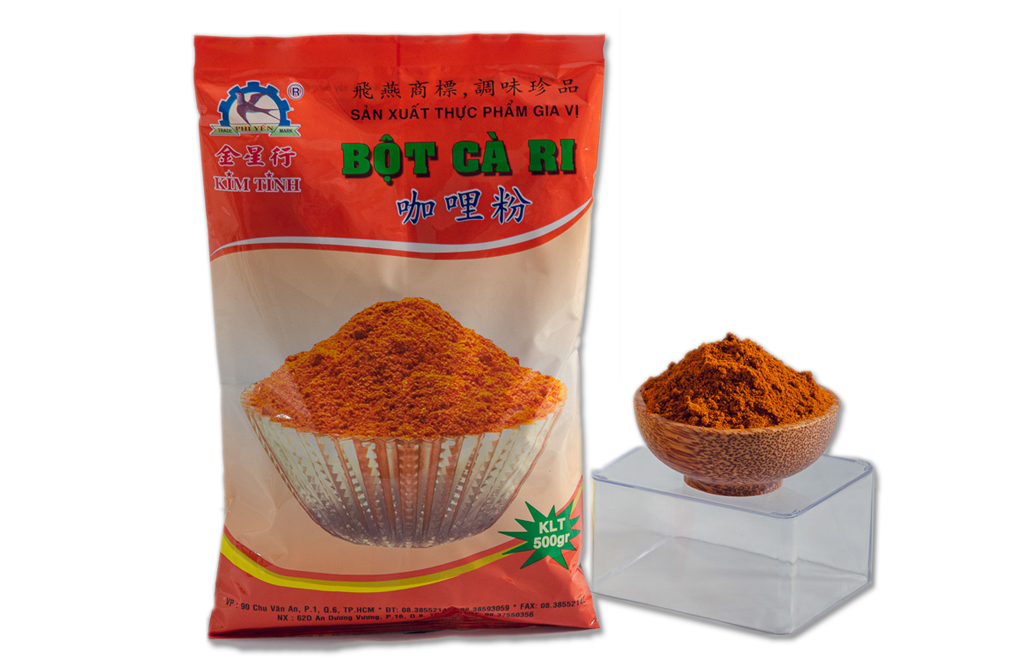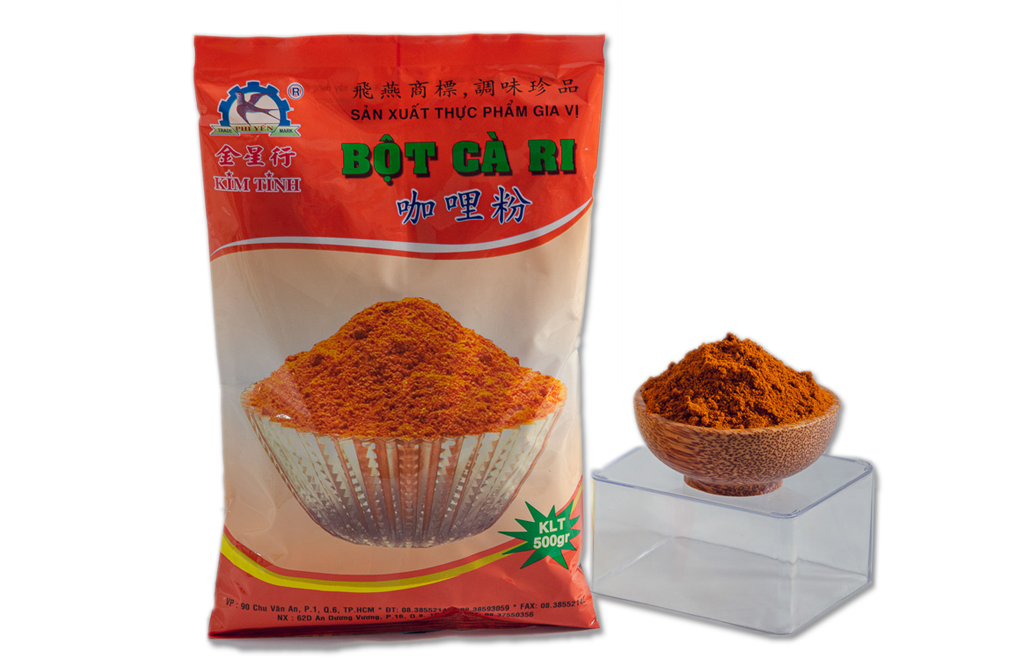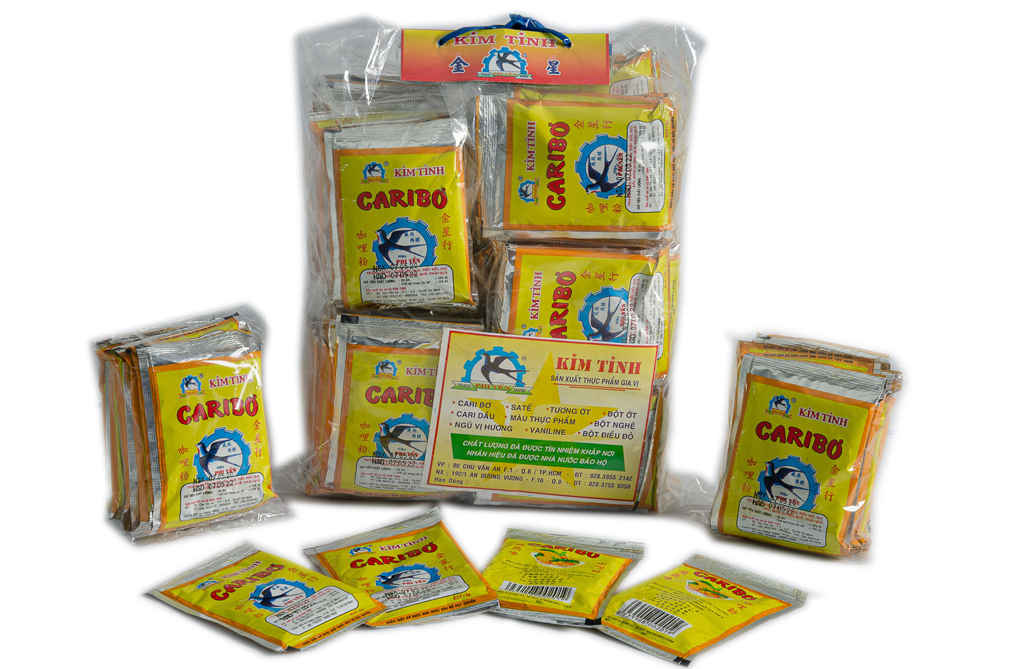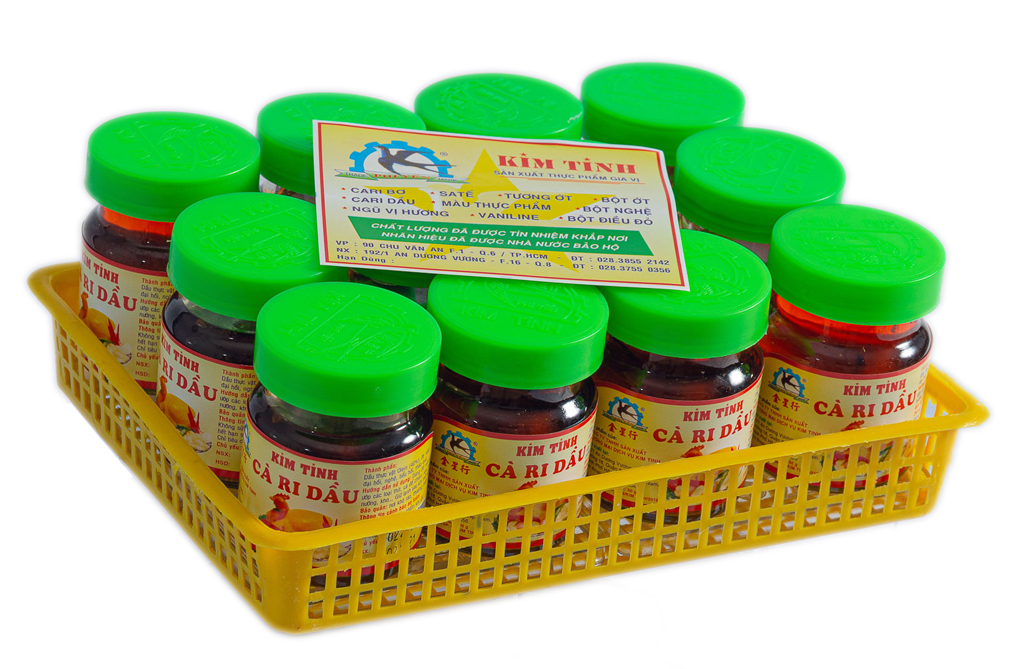Curry Powder 500g
30/08/2020
Loại: Curry Powder
Hỗ trợ mua hàng
Hotline: 028 3755 0356
(Bán hàng cả Thứ Bảy và Chủ Nhật)
Ingredients: Turmeric, cashew nuts, cilantro, dried chili, anise, anise, cloves, cinnamon, dried garlic, cardamom. DOESN'T CONTAINS ALL COLORS.
How to use: Marinate Cary powder, Kim Tinh with chicken, duck, beef, lamb, fish, seafood, eel, frog, within 15 minutes, to cook curry, peanut vermicelli, stir-fry or salt Lemongrass chili will have the color of wine and the aroma of Cary. CAN USE FOR VEGETABLES.
Preservation: Store in a cool, dry place, avoid direct sunlight on the product. Leftover product after use should be stored in a sealed jar. Should use spices before the date expires. Do not use if the bag has been opened or torn.
Made in Kim Tinh Spice Curry Powder
Curry is one of the spice terminology used for stews or sweet foods with curry powder as the main ingredients, which is famous for its reputation in many cultures such as Indians. South Asia, Pacific Rim, as well as in North America: Trinidad, Mauritius or Fiji. (Wiki)
Feature:
Curry powder is a fine yellow powder with a unique odor. An interesting point about curry powder: between curry powder and turmeric, there is a similarity in the percentage of curry powder in the ingredients of curry powder.
Origin and popularity:
Spicy marinated meat dishes are believed to have originated in prehistoric times, among the inhabitants of the Indus basin civilization. Archaeological evidence dating back to 2600 BC in Mohenjo-daro shows the use of a mortar and pestle to crush spices including mustard, dill, and tamarind bark that humans use to flavor. food. Such dishes are also recorded in the Vedic period of Indian history, around 1700-500 BC.
Indian-style seasoned dishes seem to have been brought east to Burma, Thailand, and China by Buddhist monks in the 7th century, and southward into Indonesia. , The Philippines, and to other places by coastal traders at the same time. The founding of the Mughal empire, which began in the early 16th century, transformed many ancient Indian cuisines, especially in the North. Another influence was the establishment of Portuguese trading centers in Goa in 1510, which led to the first introduction of chili to India, as a byproduct of Columbia exchange.
Since the mid-19th century, curry has grown in popularity in England. In the 19th century, curry was also introduced to the Caribbean by Indian contracted workers in the sugar industry in England. Since the mid-20th century, curries with many national styles have become popular and far exceeded their origins, and are increasingly becoming a part of international fusion cuisine.
Curry dishes in Vietnam:
In Vietnam, "curry" is called curry. A curry dish in Vietnam features ingredients such as coconut milk, potatoes, sweet potatoes, taro, chicken with coriander and scallions. This dish is more like soup than Indian curry. Curry of goat meat is also available, but only in a few special restaurants in Vietnam. Curry is usually served with bread, vermicelli or rice. Curry in Vietnam is considered a dish in the South.
The other ingredients of the curry are very diverse, depending on the main ingredients of the curry, as well as the chef's creativity. We often find curry with coconut milk, red cashew, onion, ginger, assorted meats (pork, goat, beef, chicken, sheep, alligator, ostrich and some seafood like fish, eel. ...), potatoes, sweet potatoes, carrots, radishes, vegetables, etc.
Health benefits:
Several studies have shown that ingredients in curry such as turmeric can help prevent a number of diseases, including colon cancer and Alzheimer's disease. Some studies have suggested that the response of pain receptors to the hot ingredients in curry will lead to the generation of endorphins in the body; Curry is believed to be one of the most powerful stimulants. [28] With a complex sensory response to a variety of spices and flavors, a natural curb is formed, causing the next cravings, often followed by a need to switch to a spicy curry. than. Some people think this is addictive, but other researchers have argued about using the term "addiction" in this case.





